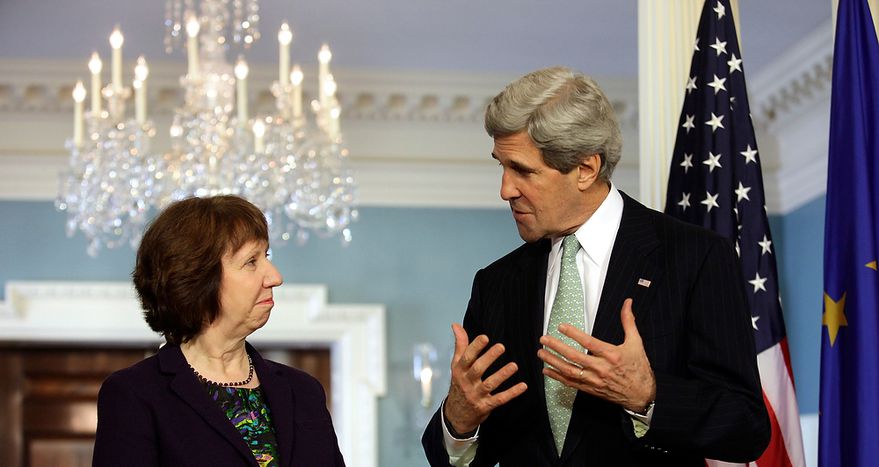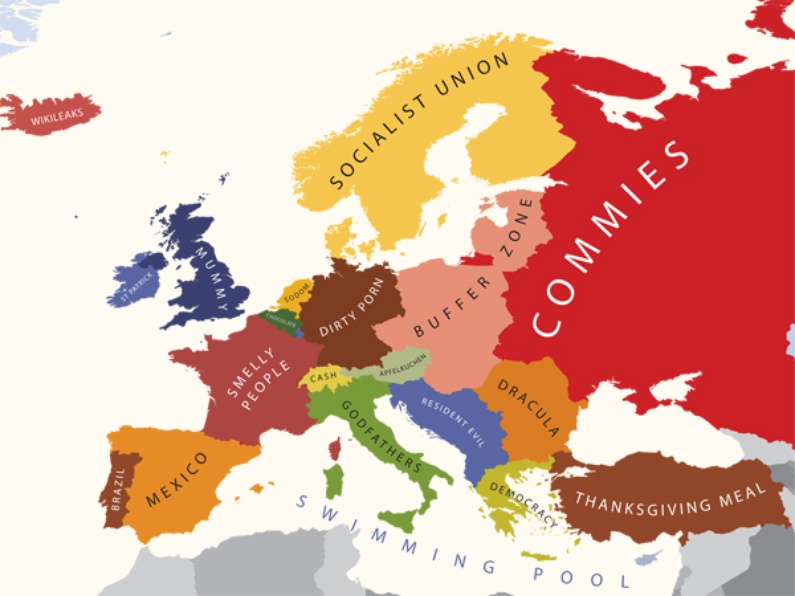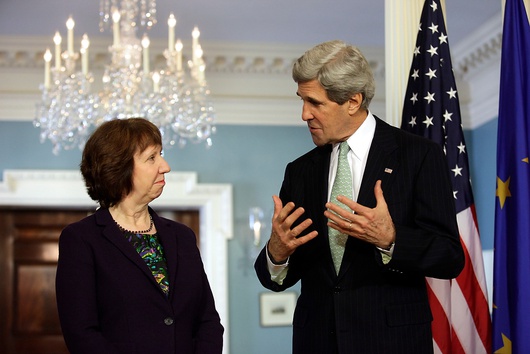
What do Americans think about Europe?
Published on
Despite working closely as political, economic and military partners for the last few decades, EU - US relations are going through a rocky time following the NSA spying scandal. We have heard a lot about European resentment of American espionage, but what do Americans think about Europe?
Relations between Europe and the United States have fallen on hard times recently. The partners are currently stuck in trans-Atlantic limbo, suspended uneasily between the shocking espionage scandal which revealed the US has been spying on European citizens and politicians, and an historical and highly profitable trade agreement. But beyond the realm of politics, what kind of state are trans-Atlantic relations really in? More precisely, how do Americans perceive Europe? As an Italian in the American Southwest for an internship, I decided to ask some University of New Mexico students what they think of Europe and how they perceive the recent eavesdropping affaire.
It's all about the economy
First of all, I wanted to find out what young educated Americans know about the European Union. On average, very little. Those who do actually know something about the EU rarely understand more than the economic side of the union. In the words of management student Paul, for example, the EU is ‘a collaboration of countries striving to homogenise their economies.’ The people I interviewed tended to confuse the EU and the Eurozone, asserting, like Kathryn, that EU countries, ‘for the most part operate on the same currency,’ or, like Monique, that the EU, ‘is a grouping of various countries with a shared currency, the Euro.’
A 2012 poll by Pewglobal.com shows that one in two Americans has a favorable view of the EU as an institution. That percentage, however, is five points lower than in 2011. The opinion of students is slightly more positive than that of the wider population. Paul expresses the most favourable judgment, stating, ‘The EU is a great way to share information and trade between countries.’ Savanna explains that when she thinks about Europe she thinks more about the way Europeans perceive the US. ‘I believe Europeans have a good opinion of America because of its popular culture, but on the other hand they are sometimes bothered by the way America portrays itself,’ she said.
 According to the same survey, most European countries perceive the US positively. In 2012 Italy led the table of America lovers with 74% expressing a positive opinion, followed by Poland and France on 69%. The country most unfavourably disposed towards the US was Greece, with a 35% approval rating. Nevertheless, some young Americans have the impression that Europeans widely dislike them. Michael, for example, is somewhat resentful and thinks that many European countries, ‘are self-righteous. They dislike America despite what we do. Although we have made many mistakes, which country hasn't?’
According to the same survey, most European countries perceive the US positively. In 2012 Italy led the table of America lovers with 74% expressing a positive opinion, followed by Poland and France on 69%. The country most unfavourably disposed towards the US was Greece, with a 35% approval rating. Nevertheless, some young Americans have the impression that Europeans widely dislike them. Michael, for example, is somewhat resentful and thinks that many European countries, ‘are self-righteous. They dislike America despite what we do. Although we have made many mistakes, which country hasn't?’
'rich and diverse customs'
Others are aware of the disagreements between the EU and the US, but still accept that these differences can be advantageous. According to Paul, ‘both sides benefit from being critical of each other and from sharing those differences.’ The Old World is always regarded as a setting for exceptionally rich and diverse customs. ‘All European countries hold their rich cultures very dear,’ says Raul. Monique adds that she thinks of Europe as, ‘a lively grouping of countries that have found a way to get along and still maintain their own history and heritage.’
 Regarding the NSA spying scandal, most of the young Americans I spoke to sided with the EU. ‘I’m incredibly shocked and upset with my government right now,’ says Kathryn. ‘It’s as if they don’t care about international relations with other countries,’ she adds. According to Michael, ‘These decisions were made by a few people in Washington, and the need to spy on friendly countries is not a view shared by many Americans.’ Monique hopes, ‘new rules and laws can be considered to aid in avoiding this type of behavior in the future.’ ‘It’s ironic that, while Americans are really concerned about rights, they spy on other countries,’ remarks Savanna, ‘and I don’t think President Obama was justified,’ she adds.
Regarding the NSA spying scandal, most of the young Americans I spoke to sided with the EU. ‘I’m incredibly shocked and upset with my government right now,’ says Kathryn. ‘It’s as if they don’t care about international relations with other countries,’ she adds. According to Michael, ‘These decisions were made by a few people in Washington, and the need to spy on friendly countries is not a view shared by many Americans.’ Monique hopes, ‘new rules and laws can be considered to aid in avoiding this type of behavior in the future.’ ‘It’s ironic that, while Americans are really concerned about rights, they spy on other countries,’ remarks Savanna, ‘and I don’t think President Obama was justified,’ she adds.
Others, like Raul, think that, ‘the spying being thrown out in the public eye could negatively affect EU-US relations because our government got caught, but every country, or every economic region has spies.’ Paul observes that ‘it was hypocritical’ that some European countries expressed outrage at the snooping, ‘as I would assume most countries have some sort of information gathering techniques for other countries, even the ones they’re allied with.’ However, he admitted that, ‘the US may have gone too far with its effort.’ Critical developments in trans-Atlantic relations over the coming months will undoubtedly play a significant role in defining young Americans’ perceptions of the EU in the coming years.



